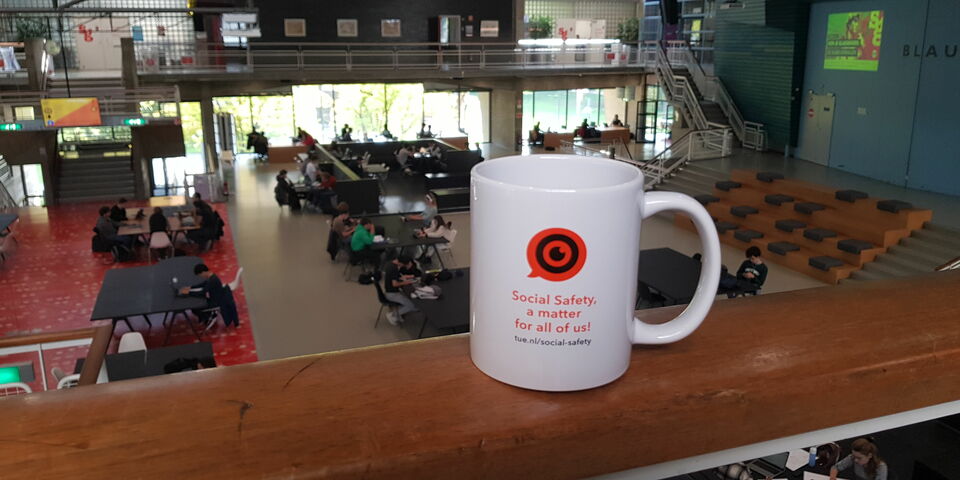“Social safety is a responsibility of us all”
Rector Frank Baaijens announced the start of TU/e’s Social Safety Plan this afternoon. The plan addresses, among other things, a further tightening of existing procedures, more clarity on where people can turn to with problems, and the appointment of an independent ombudsperson this fall. “That alone isn’t enough,” Baaijens said, “we have to do this together, and that will require a cultural shift.”
“Our university, too, has seen examples of inappropriate and unacceptable behavior that we need to address,” rector Baaijens said during the introduction of TU/e’s new Social Safety Plan in the large lecture hall of the Atlas building this afternoon. “I don’t mean to say, incidentally, that the situation is much worse here than at other institutions in the Netherlands,” he immediately added.
Nearly all the deans were present at the meeting, and they all briefly addressed the issue of social safety in the promotional video that was made especially for the introduction of the plan. The message, in a nutshell: students and staff members at TU/e should be able to carry out their work and to speak their minds in a safe environment. Because without such an environment where people respect one another, TU/e won’t be able to offer high quality education, nor will there be room for research to prosper.
Report immediately
Anyone who notices something at TU/e that doesn’t feel right, should report it immediately, Baaijens said. “In the current situation things come to the surface only after a long time. That is why it’s so important to come forward at an early stage, so that we can hopefully prevent these kinds of incidents from occurring again in the future.”
Corlien van Dam, who is in charge of the introduction of the plan in her capacity as policy advisor at Human Resource Management, says that its implementation will follow three tracks. “We will work towards a cultural shift, and the first requirement is that everyone knows what our university represents: what are our values? These were outlined in the so-called TU/e Value Statement, issued in July. Second, the procedure for filing a complaint needs to become clearer. People should be able to find this procedure immediately on the new site. In addition, an ombudsperson has been appointed. At this point we can’t disclose the identity of that person, who will start this fall, but it is someone from outside the university.”
The third track, Van Dam says, it to make social safety an integral part of the university’s learning & development trajectory. “By creating awareness of this issue among our staff members, we expect to realize that cultural shift in the coming years. This is in line with the new Recognition and Rewards program with which we intend to appraise our scientists in the future. We will no longer assess them based solely on how much funding they raise and on their publication output, but also on how they operate as supervisors of a research group, for example.”
Active bystander
WISE, TU/e’s network of female scientific staff, will once again organize active bystander training sessions this academic year, just as it did the previous year, Van Dam says. These online sessions are scheduled to take place on October 4 and 11. Van Dam: “As an extra activity, people can attend a stage play in the buildings on campus early next year that we hope will make everyone aware of the issue and start a dialogue.”
The latter is what rector Baaijens also hopes for, he says as he hands out special mugs this afternoon with the words ‘Social Safety, a matter for all of us’ printed on them. “Take this with you to the coffee machine at your department and use it to start a conversation about the problem.”


Discussion